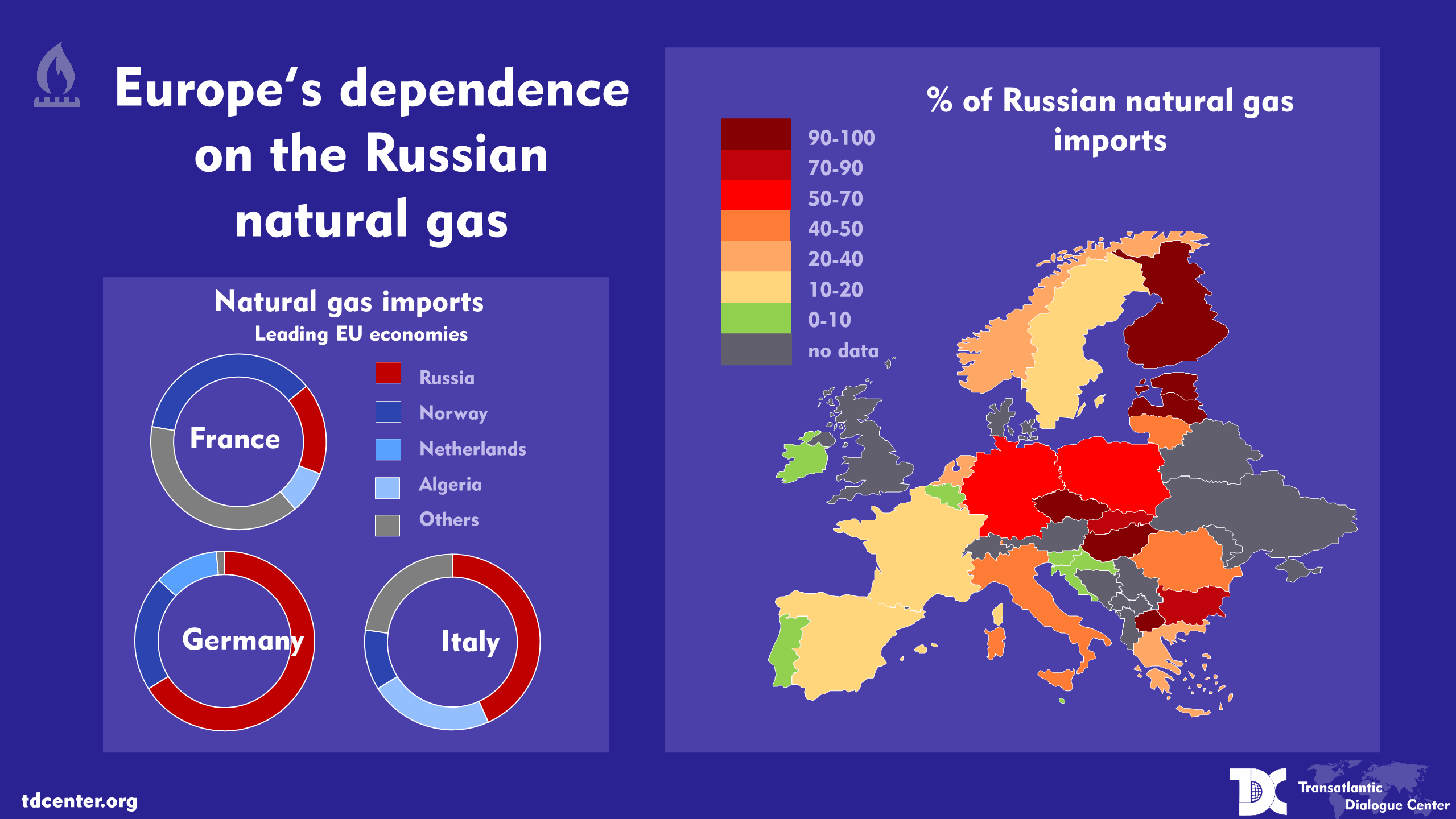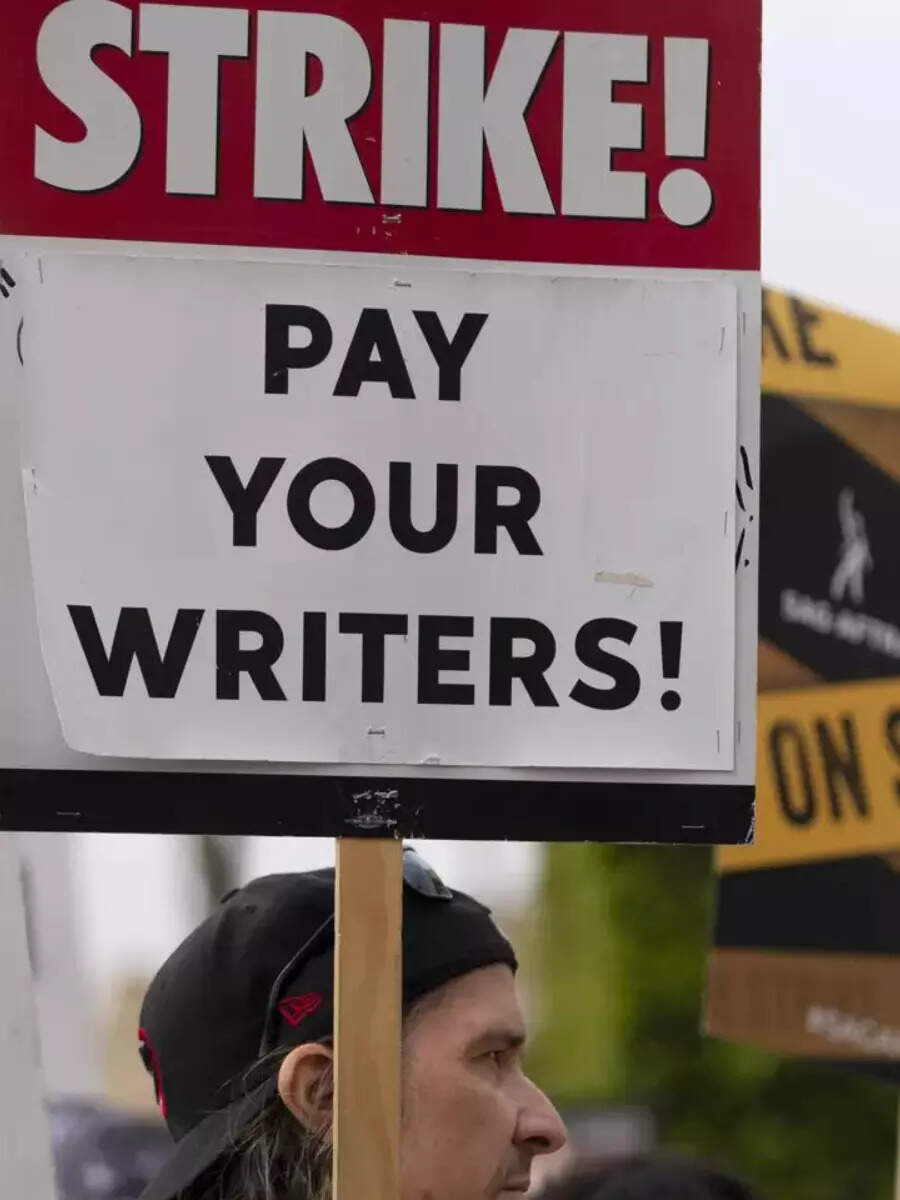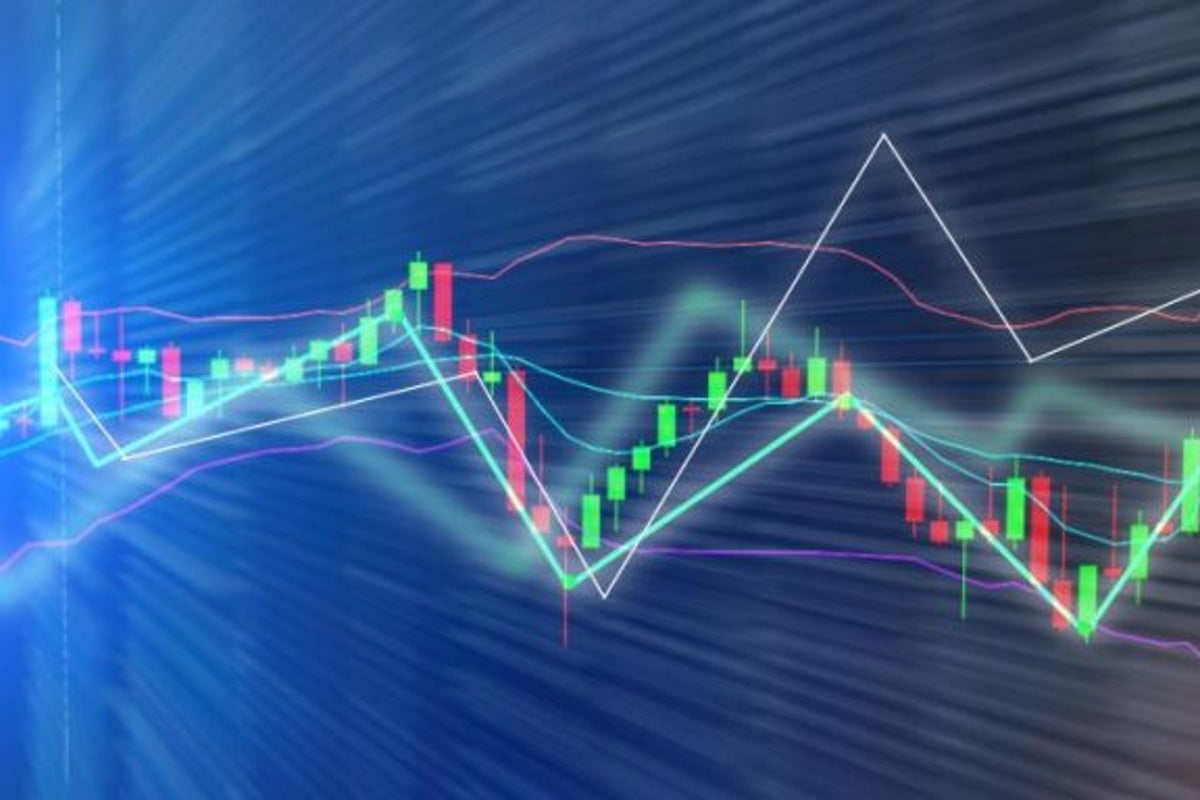Russian Natural Gas: EU's Discussion On Spot Market Restrictions

Table of Contents
Before the war in Ukraine, the EU relied on Russia for approximately 40% of its natural gas imports – a stark statistic highlighting a dangerous dependence. This reliance, built over decades, has now become a central point of contention in the wake of the ongoing conflict. The geopolitical context has dramatically shifted, placing the EU's energy security at the forefront of political and economic discussions. This article will examine the ongoing debates within the EU regarding restrictions on the Russian natural gas spot market, exploring the arguments for and against such measures and their potential implications.
The Current State of Russian Natural Gas Imports to the EU
Pre-War Dependence
For many years, numerous EU member states heavily depended on Russian natural gas imports, relying on a complex network of pipelines for their energy needs. This dependence wasn't uniform across the EU.
- High Import Countries: Germany, Italy, and Poland were among the largest importers of Russian natural gas, creating significant vulnerabilities.
- Pipeline Infrastructure: The Nord Stream pipelines, directly connecting Russia to Germany, exemplified this extensive infrastructure, illustrating the depth of the integration between the Russian gas sector and the EU energy market.
- Historical Price Trends: Before the war, prices for Russian natural gas were generally relatively stable, although subject to market fluctuations, contributing to a sense of complacency regarding energy security.
The Impact of the War in Ukraine
The war in Ukraine fundamentally altered the EU's energy landscape and its relationship with Russia. The conflict exposed the EU's vulnerabilities and the inherent risks of relying heavily on a single supplier.
- Sanctions on Russia: The EU imposed a series of sanctions targeting the Russian energy sector, aiming to limit Russia's revenue and exert pressure. However, these sanctions have been carefully calibrated to avoid triggering a major energy crisis within the EU itself.
- Reduction in Gas Flows: Russia significantly reduced gas flows to Europe, using energy as a geopolitical weapon, exacerbating an already tense situation and leading to soaring energy prices.
- Ensuing Energy Crisis: The war triggered an unprecedented energy crisis across Europe, leading to high inflation, industrial disruption, and anxieties about energy affordability for households.
Diversification Efforts
Recognizing the urgency, the EU has intensified efforts to diversify its energy sources and reduce its dependence on Russian gas. These efforts are multifaceted and face significant challenges.
- LNG Imports: The EU is rapidly increasing its imports of Liquefied Natural Gas (LNG) from various global suppliers, investing in new LNG terminals to accommodate the increased supply.
- Renewable Energy Development: The EU is heavily investing in renewable energy sources, such as solar and wind power, to replace fossil fuels in the long term. This includes significant investments in grid infrastructure to manage the intermittent nature of renewable sources.
- Energy Efficiency Measures: Improving energy efficiency across buildings, transportation, and industries is a crucial element of the EU's strategy, aiming to reduce overall energy consumption. This involves supporting energy-efficient technologies and promoting behavioral changes.
Arguments For and Against Spot Market Restrictions on Russian Natural Gas
Arguments in Favor of Restrictions
Proponents of restricting the spot market for Russian natural gas emphasize the need to enhance energy security and further pressure Russia.
- Reduced Financial Resources for Russia: Restricting access to the spot market would significantly reduce Russia's revenue from gas sales, limiting its ability to finance the war in Ukraine.
- Enhanced Energy Security for the EU: Reducing reliance on Russian gas through market restrictions is a crucial step toward building a more secure and resilient energy system within the EU.
- Support for Ukraine: Restricting the spot market demonstrates stronger support for Ukraine and puts additional pressure on Russia to end the conflict.
Arguments Against Restrictions
Opponents of restrictions raise concerns about the potential negative economic impacts on the EU.
- Risk of Increased Energy Prices: Restrictions could lead to even higher energy prices, potentially harming consumers and businesses, especially vulnerable populations.
- Potential Supply Shortages: Restricting access to the spot market might exacerbate existing supply shortages, particularly during peak demand periods.
- Impact on Vulnerable Populations: Increased energy prices resulting from restrictions disproportionately impact low-income households, potentially leading to energy poverty.
The Role of Market Volatility
Fluctuations in the natural gas spot market significantly complicate decision-making regarding restrictions.
- Price Spikes: Sudden price spikes introduce uncertainty and make long-term planning challenging for both businesses and governments.
- Impact on Consumer Confidence: High and volatile energy prices negatively affect consumer confidence and economic growth.
- Difficulty of Forecasting Future Energy Prices: The inherent unpredictability of the spot market makes it difficult to accurately assess the long-term consequences of any policy intervention.
The EU's Current Policy and Future Outlook Regarding Russian Natural Gas
Existing EU Regulations
The EU has already implemented several regulations aimed at reducing its reliance on Russian gas.
- Specific Regulations: These include regulations promoting diversification, investment in renewable energy, and measures to improve energy efficiency. The specifics of these regulations are constantly evolving in response to the changing geopolitical landscape.
- Effectiveness: The effectiveness of these regulations varies, depending on the specific measure and the ability of member states to implement them effectively.
- Challenges in Enforcement: Ensuring consistent and effective enforcement across all member states poses a significant challenge.
Future Policy Directions
The EU’s future policy regarding Russian natural gas will depend on several interconnected factors.
- Potential Future Sanctions: Further sanctions targeting the Russian energy sector are possible, depending on the evolution of the war in Ukraine.
- The Role of International Cooperation: Strengthening international cooperation on energy security is crucial for securing alternative supply sources and promoting energy market stability.
- Long-Term Energy Strategies: The EU is developing long-term energy strategies aiming to achieve complete independence from Russian gas while ensuring the affordability and reliability of energy supplies.
The Implications for Energy Prices and Security
The EU’s decisions on Russian natural gas have profound implications for energy prices and security of supply.
- Price Forecasts: Predicting future energy prices is inherently difficult, but scenarios ranging from moderate increases to substantial price shocks are possible, depending on policy choices and market dynamics.
- The Need for Energy Efficiency Measures: Investing in energy efficiency is crucial to mitigate the impact of higher energy prices and reduce overall reliance on imported fossil fuels.
- The Role of Alternative Energy Sources: Accelerating the transition to renewable energy sources is paramount for enhancing both energy security and sustainability in the long term.
Conclusion: Navigating the Future of Russian Natural Gas and EU Energy Security
This article has examined the complex interplay between the EU and Russian natural gas, specifically focusing on the debate surrounding spot market restrictions. The arguments for and against such restrictions highlight a crucial trade-off between energy security and economic stability. The EU’s diversification efforts, while essential, face numerous challenges. The key takeaway is the urgent need for the EU to diversify its energy sources, enhance its energy security, and accelerate the transition to a more sustainable and independent energy system.
To stay informed about these critical developments, further research into EU energy security and the implications of spot market restrictions on Russian gas imports is strongly recommended. Understanding the complex relationship between Russian natural gas supplies and the stability of the EU energy market is vital for navigating the challenges ahead.

Featured Posts
-
 V Mware Costs To Skyrocket 1 050 At And Ts Reaction To Broadcoms Price Hike
Apr 24, 2025
V Mware Costs To Skyrocket 1 050 At And Ts Reaction To Broadcoms Price Hike
Apr 24, 2025 -
 Hollywood Production Grinds To Halt As Actors And Writers Strike
Apr 24, 2025
Hollywood Production Grinds To Halt As Actors And Writers Strike
Apr 24, 2025 -
 Open Ais New Tools For Effortless Voice Assistant Development
Apr 24, 2025
Open Ais New Tools For Effortless Voice Assistant Development
Apr 24, 2025 -
 My 77 Inch Lg C3 Oled Tv A Detailed Review
Apr 24, 2025
My 77 Inch Lg C3 Oled Tv A Detailed Review
Apr 24, 2025 -
 Canadian Dollars Recent Fluctuations Understanding The Market Dynamics
Apr 24, 2025
Canadian Dollars Recent Fluctuations Understanding The Market Dynamics
Apr 24, 2025
